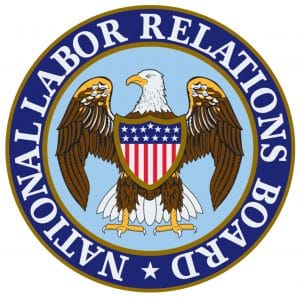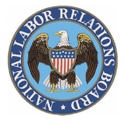In response to an Emergency Temporary Standard (ETS) to protect workers from coronavirus that was issued earlier this month by OSHA, National Labor Relations Board General Counsel Jennifer Abruzzo issued a memo to all field offices concerning COVID vaccine mandates and collectively bargained worker protections. As General Counsel, Abruzzo is responsible for enforcing the National Labor Relations Act’s provisions.
In the memo, General Counsel Abruzzo indicated that while situations on work properties vary on a case-by-case basis, “employers covered under the National
OSHA’s ETS, implemented Nov. 5, ordered employers of 100 or more employees to “develop, implement, and enforce a mandatory COVID-19 vaccination policy, with an exception for employers that adopt a policy requiring employees to either get vaccinated or elect to undergo regular COVID-19 testing and wear a face covering at work in lieu of vaccination.”
A U.S Court of Appeals for the 5th Circuit has since issued a temporary stay on the ETS, asking for further briefing by the parties. The General Counsel’s memo indicates that she favors a nuanced and bargained approach between labor and employers in implementing COVID policies rather than a unilateral approach on the part of employers.
“The employer also has an obligation to bargain over the effects of this policy,” Abruzzo said in the memo.
The memo’s guidance would mainly affect TD members on bus and some transit properties.
Below is a press release from the NLRB General Counsel and a link to the memo that was released.
—
November 12, 2021
In a memo issued on November 10th, Acting Associate General Counsel for the National Labor Relations Board Joan Sullivan provided information to all field offices on the recent Department of Labor Emergency Temporary Standard to Protect Workers from Coronavirus (ETS).
The memo explains that although General Counsel Jennifer Abruzzo does not offer advisory opinions and each case stands on its own facts, the General Counsel’s position is that employers covered by the National Labor Relations Act have decisional bargaining obligations regarding aspects of the ETS that affect terms and conditions of employment—to the extent the ETS provides employers with choices regarding implementation.
Although an employer is not obligated to bargain where a specific change in terms and conditions of employment is statutorily mandated, the employer may not act unilaterally when it has some discretion in implementing those requirements. To the extent elements of the ETS do not give covered employers discretion, leaving aside decisional bargaining obligations, the employer is nonetheless obligated to bargain about the effects of the decision.
“The ETS clearly affects terms and conditions of employment—including the potential to affect the continued employment of workers who become subject to it—and gives covered employers discretion in implementing certain of its requirements. In those circumstances, a decisional bargaining obligation is required. The employer also has an obligation to bargain over the effects of this policy,” said General Counsel Jennifer Abruzzo. “While our country recovers from COVID-19, workers should know they have the right to a safe workplace and to have their voices heard.”
 In the 80 years since the National Labor Relations Act was enacted, the workplace has changed in ways that President Roosevelt never could have imagined when he declared that the goal of the law was “common justice and economic advance” for all. Yet his signature so long ago guaranteed that one thing would and has remained the same — democracy has a rightful place in the workplace.
In the 80 years since the National Labor Relations Act was enacted, the workplace has changed in ways that President Roosevelt never could have imagined when he declared that the goal of the law was “common justice and economic advance” for all. Yet his signature so long ago guaranteed that one thing would and has remained the same — democracy has a rightful place in the workplace.